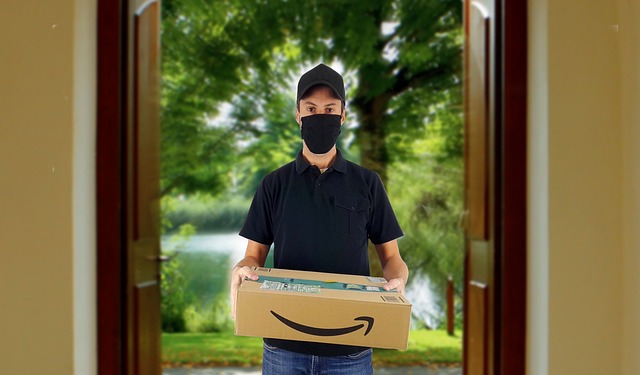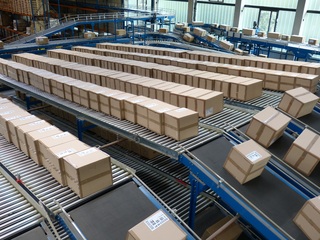
He makes sure our orders arrive at our homes: Mr G., a parcel courier, originally from Hungary. Here, he talks about his stressful working life and his fight against the logistics company that is now refusing to pay even his meagre wage. Like Mr G., most couriers have a migrant background or are refugees themselves, and hesitate to complain about their difficult working conditions – because they’re glad to have any work at all.
YOUR PACKAGE IS HERE…
…UNFORTUNATELY, YOU WEREN’T HOME…
We’ve all been there: we’re urgently waiting for a parcel to arrive, but rather than just ringing your front-door bell, the courier just takes the parcel to the nearest mobile phone shop. You’re angry, because you were there sitting at home, and now – completely unnecessarily – you’re forced to go and collect your order from the shop. But is the fact that they didn’t ring your bell really just about laziness on the part of the courier?
WHEN WAGES FAIL TO MATERIALISE
A recent ORF report took a closer look at everyday life for the couriers who deliver our parcels and packages. Mr G. was born in Hungary, and talks about his stressful 13-hour working day. The more packages you can deliver each day, the more you get along the way. As a result, you never earn a decent wage. Mr G., a young man, manages to deliver something like 150 packages a day.

FEAR OF DISMISSAL
Like many couriers, Mr G. is only employed for a limited time, via a contractor company. He was recently paid just 195 euros for 10 days’ work; now the company is refusing to pay the rest. Jasmin Haindl, an employment law specialist from the Chamber of Labour, says this is not a one-off. The contractors can get away with almost anything, because most of the couriers out on the ground speak hardly any German and have no idea whatsoever of their rights. This is even if (and the limited choice of jobs leads to this) they factor in unfair working conditions. They’re happy to have any income, and afraid of losing their job if they insist on their rights.
URINATING IN BOTTLES – AMERICAN WORKING CONDITIONS?
THEY’RE IN A RUSH
A report from the USA recently showed couriers now urinating in plastic bottles in an effort not to lose any time. Last year, one courier raced through a built-up area at 150 kilometres an hour. Two years ago, a 21-year-old courier was caught by a train while in his small van, and subsequently died as a result. The pressure on couriers to deliver is particularly high in the period running up to Christmas.
MANY OBLIGATIONS, VERY FEW RIGHTS
The couriers are just the latest example of a delivery chain such as this. After being ordered, goods are first sent to a central distribution centre, where they are sorted and subsequently passed on to the couriers, most of whom work freelance or are employed by contractor companies. Karl Delfs, a trade unionist from Vida, criticises the fact that this process creates “precarious employment conditions”. Instead of having fixed employment, the couriers receive contracts, so that legally, they are acting as agents between the distributors and us, the customers. That means they bear all the commercial risk, and enjoy no security. The model is also used by food delivery companies and taxi providers like Uber.
IMPROVEMENT IN SIGHT?
WORK INSPECTION PLANNED IN 2024
In the coming year, work inspections are intended to check these bad working conditions at the package and delivery companies in closer detail. Work Minister Martin Kocher (ÖVP) has singled out this sector as a focus for checks in 2024, according to a press release.
SHOP with a consience RATHER THAN ORDERING WITHOUT CARING – WITH INITIATIVES LIKE HOPE FOR THE FUTURE

Working conditions for couriers need to be improved – that much is clear. As consumers, we have the option to exert a positive influence by shopping with a conscience, and supporting initiatives committed to fair working conditions.
If you’re still looking for a Christmas present and want to shop sustainably, for example, take a look at the Hope for the Future Shop today. You may see something you like there for your loved ones – or even treat yourself to a gift, to make a change. All products from Hope for the Future are sent by the Austrian Post Office, Österreichische Post, which employs its couriers on fixed contracts.
Translated by Tim Lywood
#Paketzusteller #Selbstständige #Subunternehmen #Prekär #Stress #Arbeitsverhältnis #AgainstHumanTrafficking #GegenMenschenhandel #EndExploitation #EndTrafficking #HopeForTheFuture #Österreich
